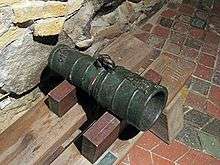trono
Catalan
Esperanto
Etymology
Borrowed from English throne, French trône, German Thron, Italian trono, Spanish trono, Polish tron, Russian трон (tron), ultimately from Latin thronus, from Ancient Greek θρόνος (thrónos).
Pronunciation
Audio (file)
- IPA(key): /ˈtrono/
- Hyphenation: tro‧no
- Rhymes: -ono
Galician

Etymology 1
From Old Portuguese [Term?] (compare Portuguese trom), from Latin tonus (“thunderclap; sound, tone”) (probably through a Late Latin or Vulgar Latin *tronus, with influence from tonitrus), from Ancient Greek τόνος (tónos, “tone”).
Pronunciation
- IPA(key): /ˈtɾɔno̝/, /ˈtɾono̝/
Noun
trono m (plural tronos)
Synonyms
- (thunder): tronido
Etymology 2
Borrowed from Latin thronus, from Ancient Greek θρόνος (thrónos).
Pronunciation
- IPA(key): /ˈtɾono̝/
References
- “trono” in Dicionario de Dicionarios do galego medieval, SLI - ILGA 2006-2012.
- “trono” in Xavier Varela Barreiro & Xavier Gómez Guinovart: Corpus Xelmírez - Corpus lingüístico da Galicia medieval. SLI / Grupo TALG / ILG, 2006-2016.
- “trono” in Dicionario de Dicionarios da lingua galega, SLI - ILGA 2006-2013.
- “trono” in Álvarez, Rosario (coord.): Tesouro do léxico patrimonial galego e portugués, Santiago de Compostela: Instituto da Lingua Galega.
Ido
Italian
Pronunciation
- IPA(key): /ˈtrɔ.no/, [ˈt̪r̺ɔːn̺o]
- Hyphenation: trò‧no
Etymology 1
From Latin thronus, from Ancient Greek θρόνος (thrónos, “seat, throne”).
Etymology 2
From Latin tonus, (probably through a Late Latin or Vulgar Latin *tronus, with confluence from tonitrus).
Noun
trono m (plural troni)
- Obsolete form of tuono.
- 1321, Dante Alighieri, La divina commedia: Paradiso, Le Monnier (2002), Canto XXI, p. 379 vv. 7, 10-12:
- «[...] [L]a bellezza mia [...], ¶ se non si temperasse, tanto splende, ¶ che 'l tuo mortal podere, al suo fulgore, ¶ sarebbe fronda che trono scoscende. [...]»
- «[...] My beauty [...], ¶ if it were tempered not, is so resplendent ¶ that all thy mortal power, in its effulgence, ¶ would seem a leaflet that the thunder crushes. [...]»
- «[...] [L]a bellezza mia [...], ¶ se non si temperasse, tanto splende, ¶ che 'l tuo mortal podere, al suo fulgore, ¶ sarebbe fronda che trono scoscende. [...]»
- 1321, Dante Alighieri, La divina commedia: Paradiso, Le Monnier (2002), Canto XXI, p. 379 vv. 7, 10-12:
See also
Portuguese

Etymology
From Old Portuguese trono (“throne”) (displacing trõo), borrowed from Latin thronus (“throne”), from Ancient Greek θρόνος (thrónos, “throne, seat”).
Noun
trono m (plural tronos)
- throne (ornate seat)
- O rei sentou-se no seu trono dourado.
- The king sat on his golden throne.
- (figuratively) throne (the formal position of a sovereign)
- Ele é o herdeiro aparente do trono.
- He is the heir apparent of the throne.
- (Brazil, colloquial, humoristic) throne, toilet (ceramic bowl)
Spanish
Etymology
Borrowed from Latin thronus[1], from Ancient Greek θρόνος (thrónos).